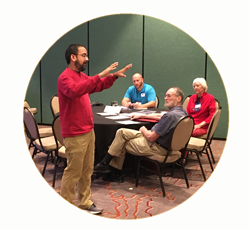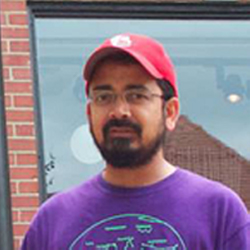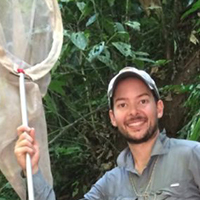 Overview:
Overview:
The natural night sky is our common and universal heritage. According to a 2016 sky brightness study, 80 percent of the world’s population lives under skyglow. In the United States and Europe, 99 percent of the public cannot experience a natural star lit night, and light pollution is rising dramatically. While the negative effects of light pollution may seem intangible, a growing body of evidence links the brightening night sky to negative effects on amphibians, birds, mammals, insects, plants, and human health. The unnecessary use of artificial light at night contributes to climate change by increasing energy consumption, and improper lighting can, contrary to public opinion, contribute to an increase in crime.
The good news is light pollution can easily be reduced or eliminated. Often, too much or the wrong color of light is used, or lights are left on when not needed. The use of technology such as timers or dimmers, combined with modifications to the light source, color temperature of the light, and type of fixture, can reduce or eliminate light pollution, while still providing needed light.
The Missouri Chapter of the International Dark-Sky Association (IDA Missouri) is encouraging parks and communities to become certified as an “International Dark Sky Place” (“IDSP”). A key requirement is for IDSP applicants to regularly deliver programs to educate the public about light pollution, its causes, and mitigation. IDA Missouri is recruiting volunteers to take training so they can, in turn, work with parks and community educators to develop effective educational programs to meet these requirements. Volunteers with expertise in areas such as naturalists and/or bird watching are particularly encouraged to take the training and volunteer. Approved applicants can take the training at no cost.
Training:
Volunteers must watch two pre-recorded videos from previous workshops, review other course materials, and participate in at least one "Live" session with one or more of the workshop instructors. The "Live" sessions will be held periodically using ZOOM or similar technology.
There are two pre-recorded videos reflecting different parts of the training:
- "Part One" - Consists of core training on the basics of light pollution, what a typical program would look like, the presenter’s responsibilities, and resources available. Volunteers will also learn what it takes to become certified an International Dark-Sky Place.
- "Part Two" - Training will focus on the impact of light on animals, plants, and birds with recommended activities to make the program more interactive.
Once trained, volunteers are offered an opportunity to receive notices from IDA Missouri about requests to train park or community officials in Missouri. Volunteers are encouraged to promote use of the program material in parks and communities within their area. An online resource center offering sample presentations, activities, and other materials will be made available to volunteers for use in training and program delivery.
Who is Eligible for the FREE training?
Training is available to anyone residing in Missouri with a presentation-level knowledge of nature or birding, who are willing to either train parks or community groups to deliver a dark sky program or deliver the program themselves. Applicants do not need to be a member of the International Dark-Sky Association to participate, although membership in IDA is encouraged (just a minimum $35.00 donation/year - learn more).
The training is intended to build on the presenter's core knowledge of nature or birding by discussing the causes and impact of light pollution on their field of expertise, steps that can be done to reduce light pollution, and how to deliver a program to the public related to light pollution. Since the purpose of this training is to support Missouri based initiatives, only applicants planning to directly support Missouri or whose organizations are involved in the "Lights Out Heartland" will be approved for this FREE training.
Apply for Training:
To apply for training, please complete the form provided below.
| Item | Date/Time |
|---|---|
| Apply to take the training | |
| Registration | |
|
Registration |
Ongoing |
| Training | |
|
Training materials will be sent by email to approved applicants. |
Ongoing |
|
Part 1 - The International Dark Sky Program and the Science of Light Pollution |
Link to pre-recorded videos |
|
Part 2 - The Impact of Light Pollution on Nature |
Link to pre-recorded videos |
| Live Q&A Zoom session with one or more of the instructors | Periodic sessions will be offered |
| Post-Training | |
| Certificate of Completion - A certification of completion will be sent by email to everyone completing training | Within two weeks of training. |
| Resource Library - Access will be provided to a resource library containing presentations and activities for use in programs. This library is expected to grow over time. | Within two weeks of training. |
| Training Opportunities - Notifications will be sent of parks or communities requesting training | As available. |
| Follow-up meet/greets - Periodic ZOOM meetings will be held for volunteers to share stories and best practices. | To be determined. |
| Apply to take the training |
Instructors
 |
PART 1: The International Dark Sky Program and the Science of Light Pollution Dr. Vayujeet Gokhale is an astronomer and an associate professor of physics at Truman State University in Kirksville, Missouri. His research interests include the study of asymmetries in eclipsing binary stars and the study of various ways of quantifying light pollution. Dr. Gokhale earned his PhD from Louisiana State University in 2007. Before joining the PhD program at LSU, Dr. Gokhale earned his Masters and Bachelors degrees in Physics at the University of Bombay in Mumbai, India. Dr. Gokhale has been involved in light pollution related research, outreach, and activism for the past five years. Dr. Gokhale and his students have worked on quantifying the sky brightness in the Kirksville area, and have helped in establishing the "SQM program" for the Missouri chapter of the International Dark Sky Association. He is leading an effort to install dark sky friendly outdoor lighting at Truman State and in Kirksville. Some of his work is supported by grants from the NASA Missouri Space Grant Consortium. Dr. Gokhale lives just outside of Kirksville with his wife Michelle and their two children and dog. His interests include traveling, camping, and astrophotography. Dr. Gokhale loves the night sky and National Parks, and dreams of someday becoming an astronomy park ranger at the Arches National Park in Utah. |
||
 |
PART 2: The Impact of Light Pollution on Nature Dr. Brett Seymoure is a visual ecologist who studies the role that both natural and artificial light play in animal visual systems, behavior, and community ecology. Brett dove into light pollution research during his first postdoc position with the National Park Service Night Sky division and Colorado State University. He now is a Living Earth Collaborative Postdoctoral Fellow at Washington University in St. Louis, MO, USA where he is studying the effects of light cycles and anthropogenic light on predator-prey interactions. |
||

